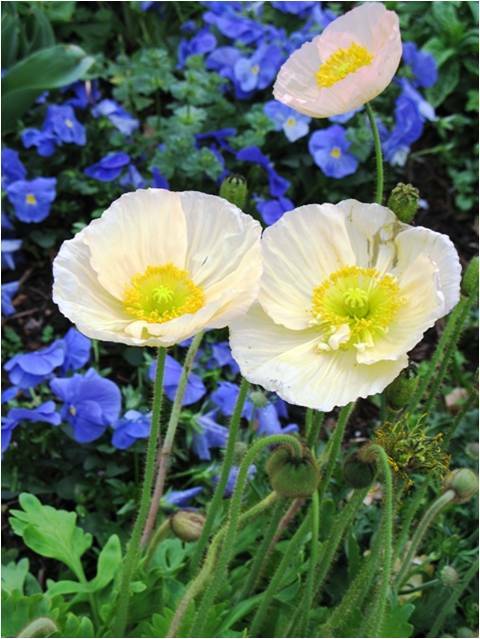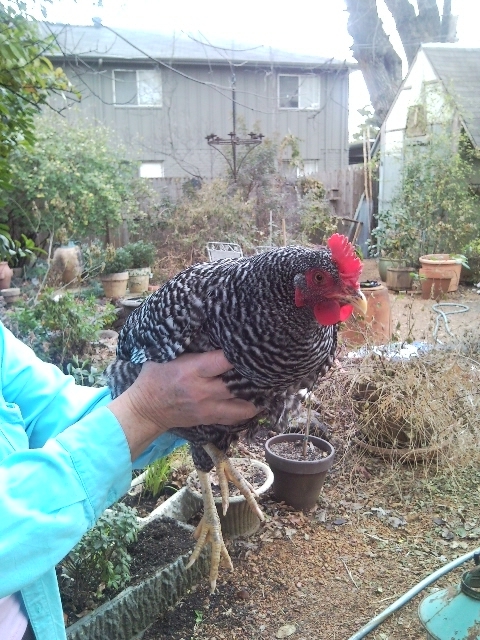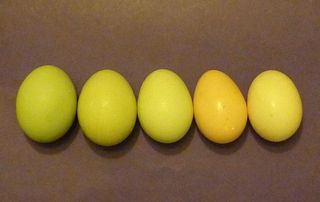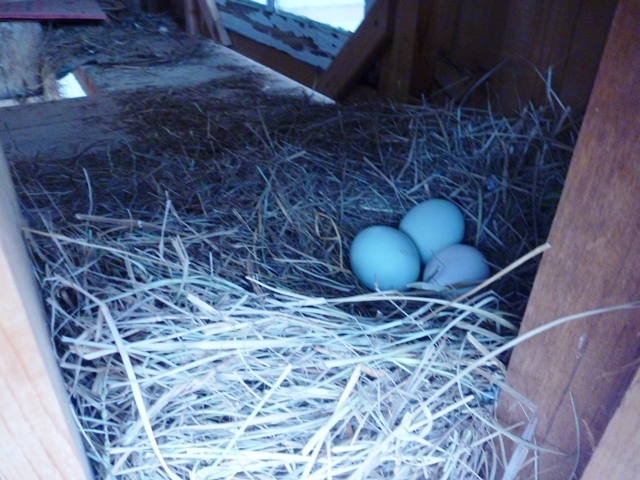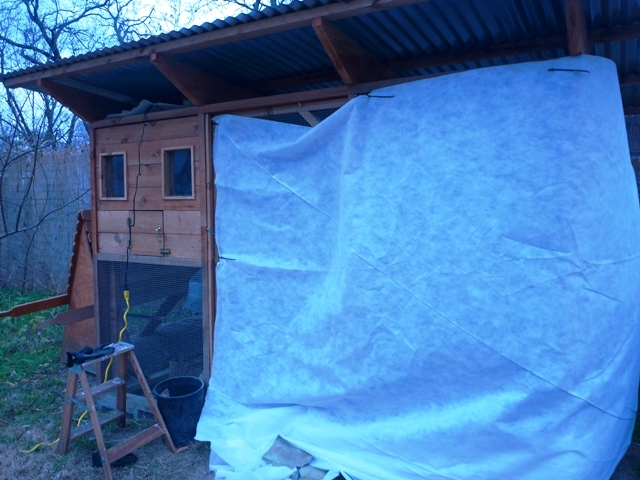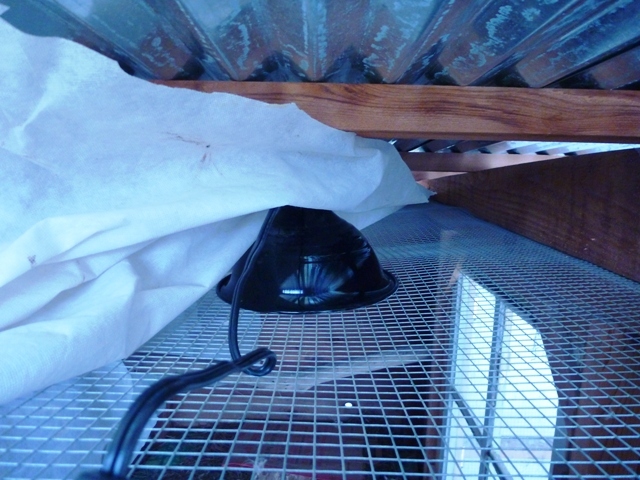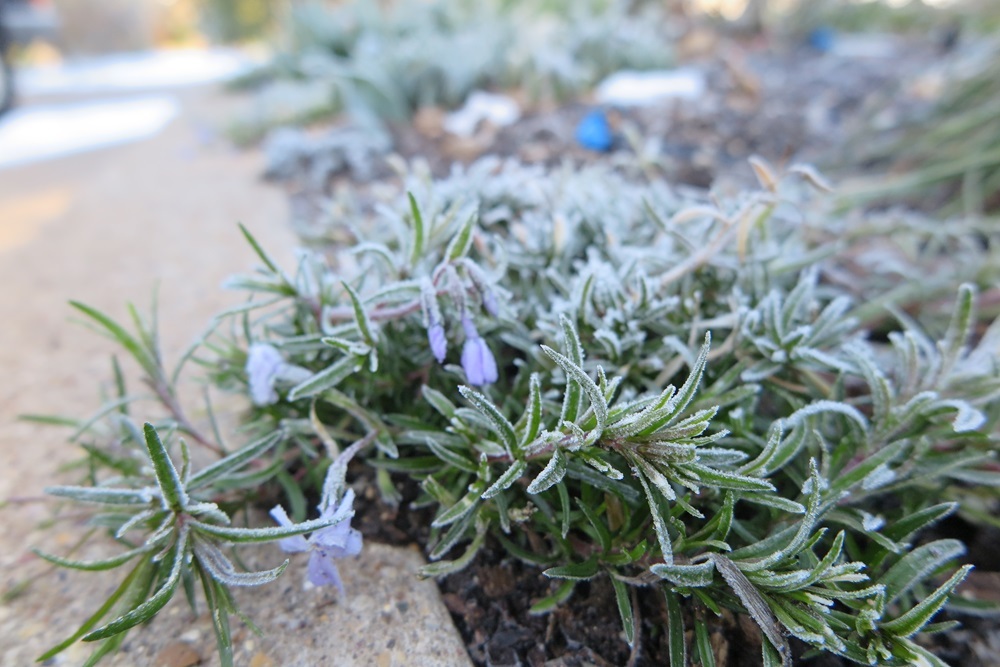(updated Jan.'24)
I've always been pretty busy during the spring season, so it never seems I can spend as much time in my garden as I would need or like! But I'm a sucker for a big flowery ephemeral display. To pull this off, there are a few key things I do in winter to ensure my spring garden can still put on a great show...even with my neglect
One planting method I love to use is naturalizing bulbs in my lawn. I'm a bit of a bulb fanatic and there's never enough room left in my garden beds for all the bulb I want to plant. So why not go into the bits of lawn I have left?
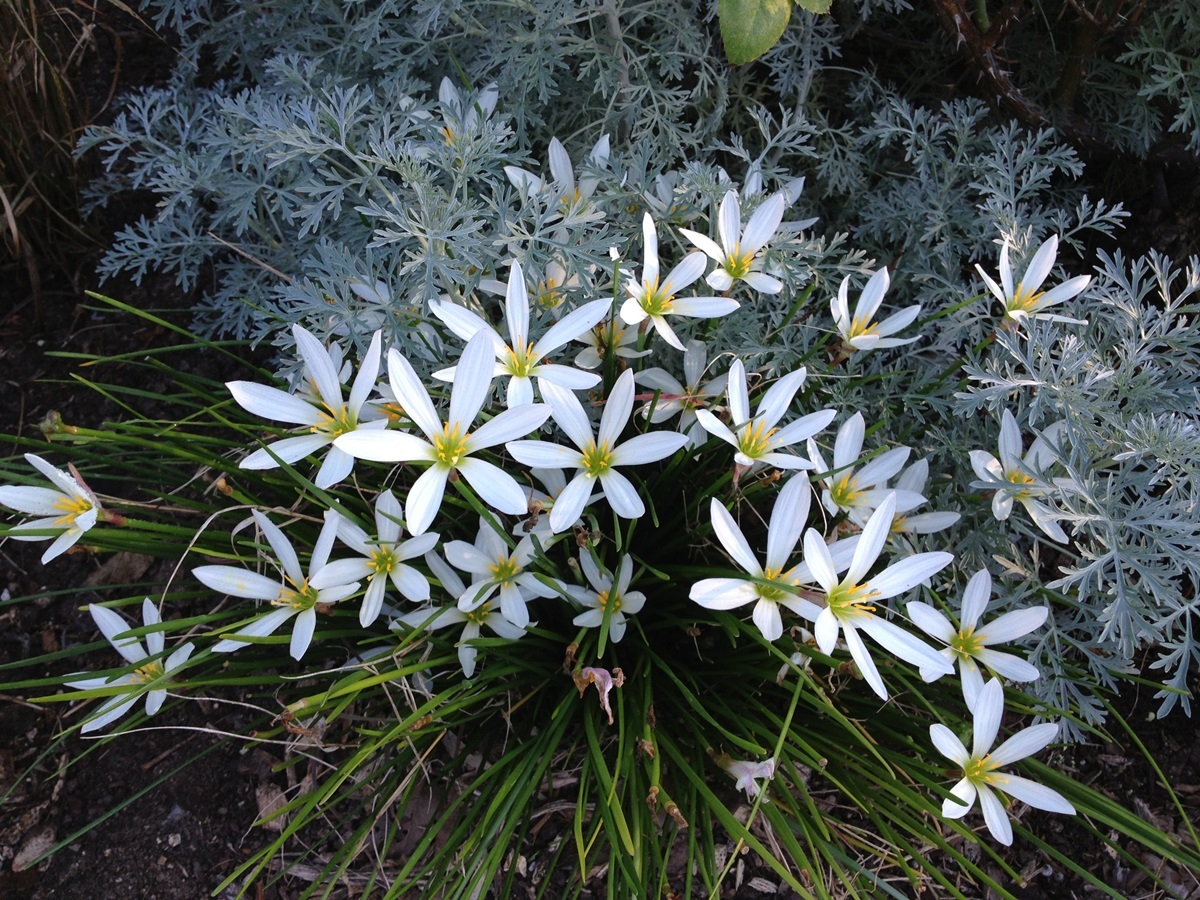
PC: Leslie F. Halleck, Zephyranthes candida
Naturalizing Bulbs in Turf
Clustering bulbs such as crocus, daffodils and other perennial bulbs in your lawn creates a natural woodland look in the spring garden.
If you haven’t yet gotten your hands on some spring-flowering bulbs, there’s still time, at least here in Texas and similar climates. You can continue planting certain perennial bulbs through January and early February. Some local garden centers and many online plant vendors will still have a selection of bulbs available for sale.
Now, what does "naturalizing" mean? It means planting species or varieties of bulbs that will not only perennialize (come back each year) but also reproduce and spread -or increase in clump size). Basically, letting the plants do the additional plantings for you!
The key to naturalizing bulbs in turfgrass, or lawns, is to choose tough, easy to grow bulbs that require minimal care in the garden. Often these will be species that are native to your area, or may be highly adapted.
Be aware that some hybrid bulb cultivars may not be as vigorous long-term, or may not be as good at naturalizing as some of the species or naturally occurring varieties. I encourage you to look for heirloom bulbs when you're looking to naturalize bulbs, not just perennialize them.
I mean, let's face it...none of us really need a perfectly mowed manicured lawn to get through life, right?
Some of My Favorite Bulbs for Naturalizing
Daffodils: (Narcissus spp.) are as tough as they come and look best when clustered in groups around the base of trees. Species and varieties will be better naturalizers (spreaders).
Good Heirloom Daffodils for naturalizing:
- Jonquil hybrids such as ‘Carlton’, ‘Texas Star’, ‘Twin Sisters’, ‘Butter & Eggs’, ‘Grand Primo’, Campernelle, ‘Double Roman’
- Triandrus daffodils, also called Angel's Tears. My favorite is 'Thalia', which is a late white blooming variety.
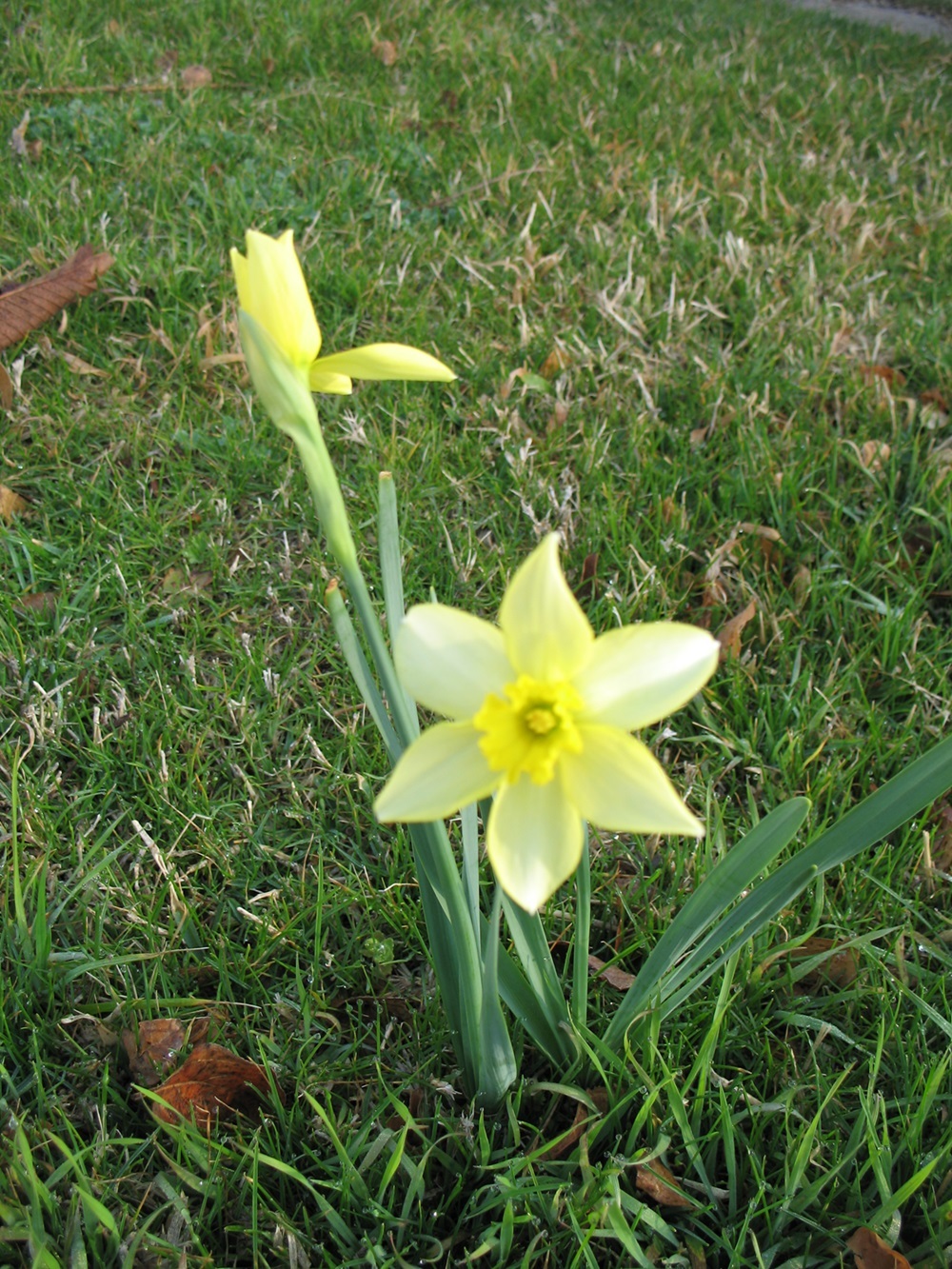
PC: Leslie F. Halleck, Narcissus in my "lawn"
Grape Hyacinth: Muscari armeniacum, Muscari neglectum The grape hyacinth imported from Holland are usually forms of Muscari armeniacum. This species has showier, larger blooms. Than other muscari. Muscari neglectum is a good species to naturalize in Texas. M. botryoides, is also available but it may not be as reliable a perennial or naturalizer.
Rain Lillies: Zephyranthes grandiflora has large pink blooms, adaptable to many soils. Giant Prairie Lily, Zephranthes drummondii, Large white blooms midsummer into fall. Drought tolerant & fragrant.
Texas Copper Lily: Habranthus tubispathus var. Texensis is ommon along roadsides and prairies. Foliage appears in spring, followed by copper colored summer blooms. Perfect for naturalizing in lawns.
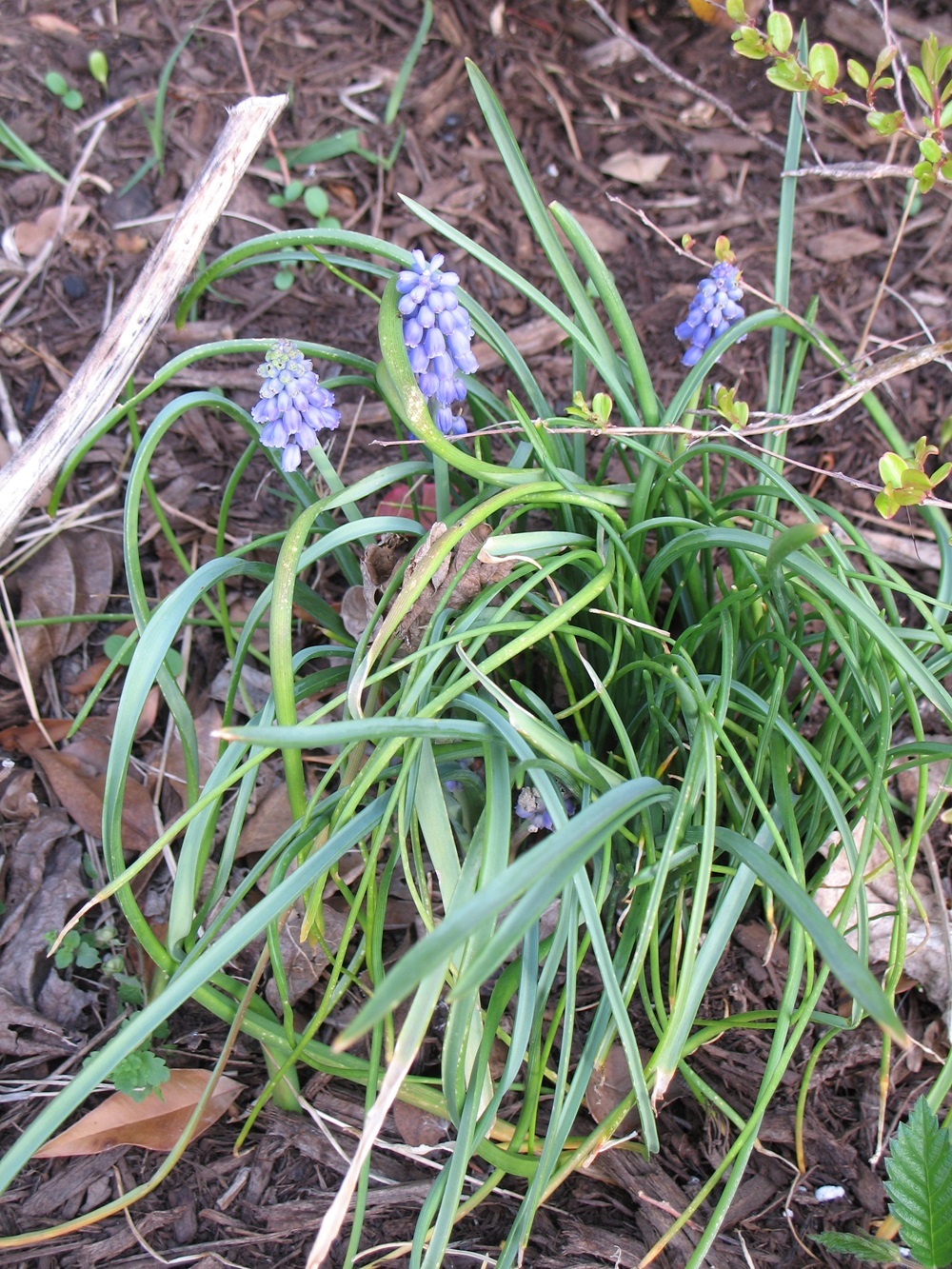
PC: Leslie F. Halleck, Muscari armeniacum
Blue Starflower- Ipheion uniflorum This genus has about twenty species that are native to South America. Flowers may emerge as early as January and can continue through April. Ipheion can be planted directly into the turf and tolerate almost any soil.
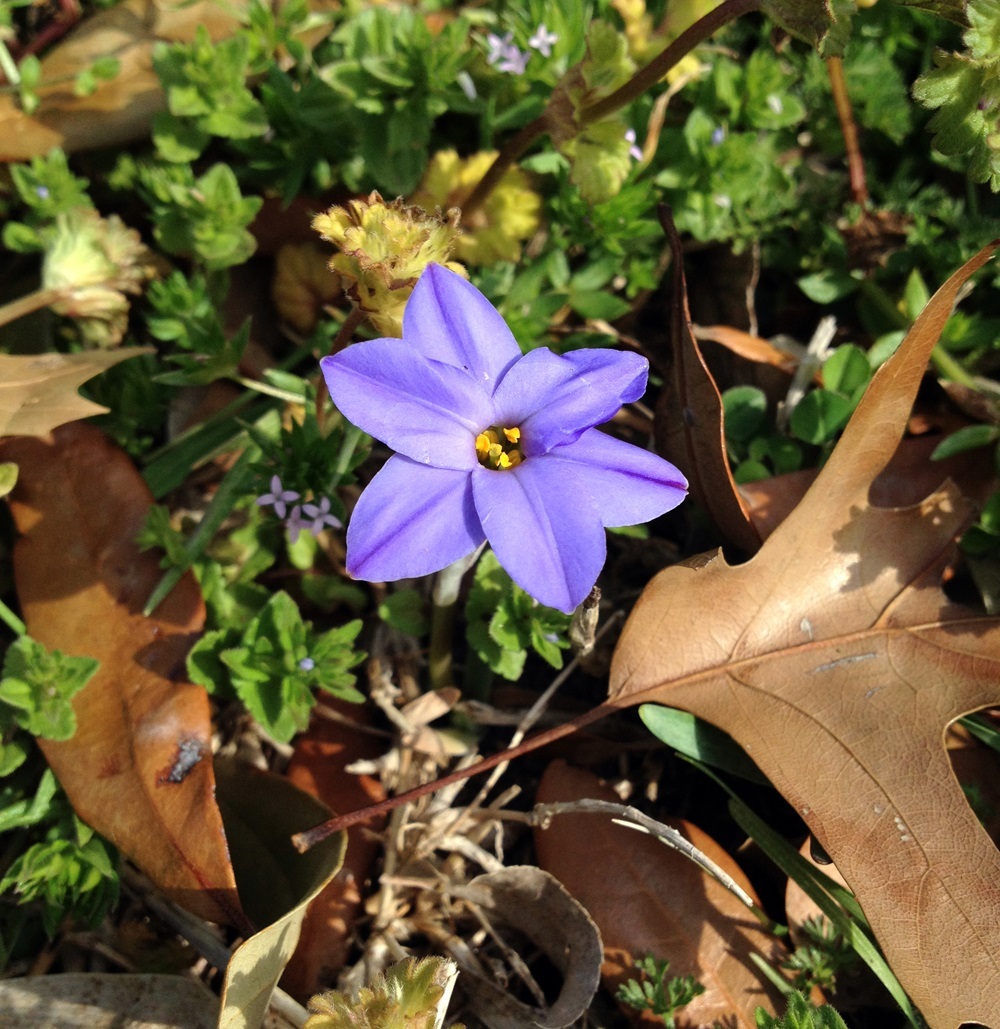
PC: Leslie F. Halleck, Ipheion uniflorum
Crocus: Crocus spp. There are several types of spring blooming crocus available. While they don’t require a chilling period to bloom, they do benefit from one., so if we have a warmer than usual winter here in Texas they may not bloom as well. Crocus look best when planted directly into turf, groundcover, or natural areas. Most will return an bloom the following year.
A couple more bigger bulbs...These will be a bit taller than the other types, but if you have the space can still work in lawns.
Red Spider Lily and Surprise lilies: The heirloom strain of Lycoris radiata imported to North America in the late eighteenth century is distinct from the imported types that are currently imported from Japan, so try and shop for the heirloom type if you can. This species sends up foliage and blooms in autumn. Foliage is dormant in summer. There are other species of Lycoris and hybrids available but you'll find that L. radiata is usually the most reliable naturalizer.
Summer Snowflake: Leucojum aestivum - this species is often confused with “Snowdrops” (Galanthus), which do not perform as well in our hot climate. Leucojum aestivum Flowers March-May; full sun to partial shade. note that Leucojum vernum is not reliable in the South.
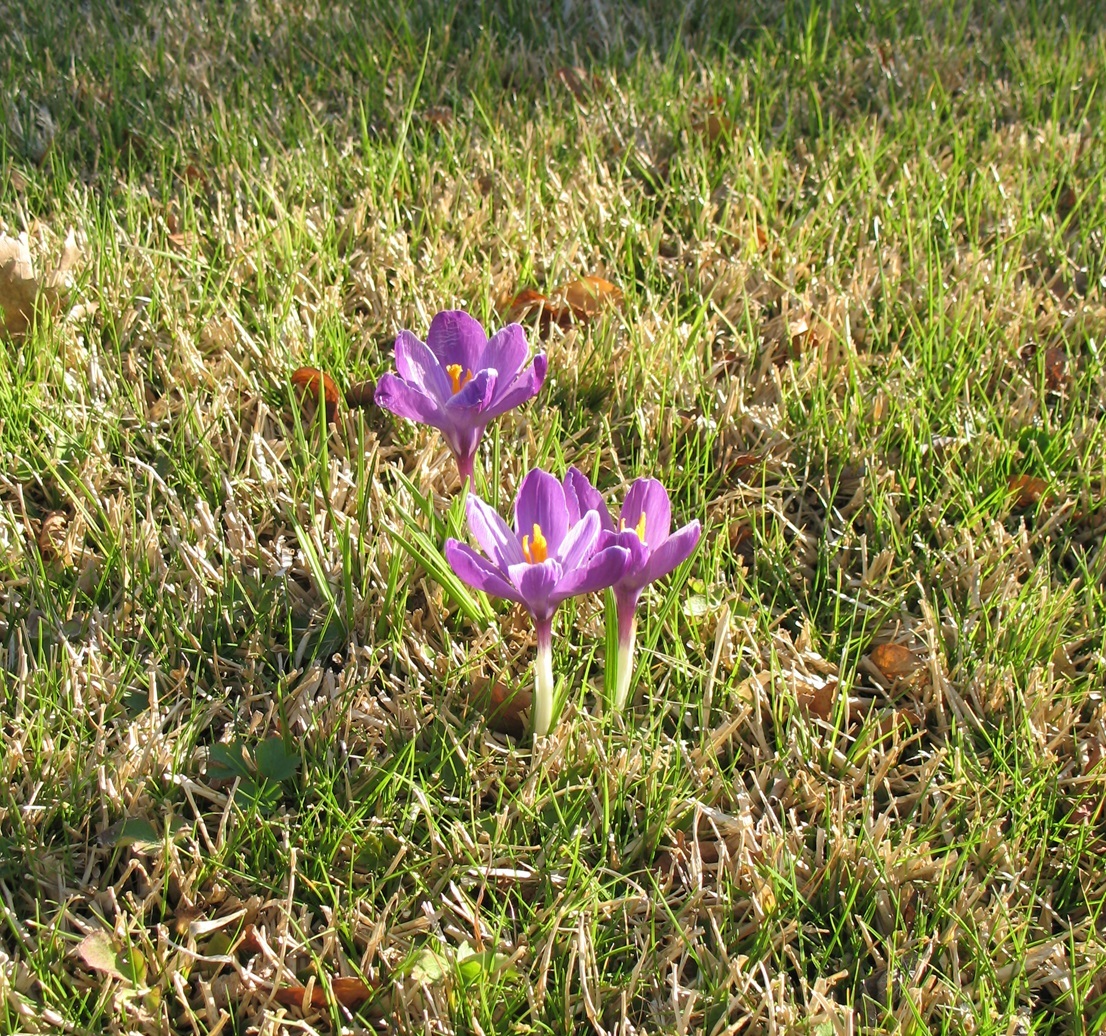
PC: Leslie F. Halleck, Crocus
How to Plant Bulbs in Your Lawn
For larger bulbs such as daffodils, you’ll either want to use a round bulb planter to slice out “plugs” of turf, then drop the bulb in the hole and replace the plug. Or, dig out an 8” deep hole to accommodate multiple bulbs. Be careful to retain the section of turf, place bulbs in the hole and then replace soil and pat the turf down on top.
Small bulbs, such as crocus and grape hyacinth, can simply be pressed into the soil, about 3” deep. If your soil is dry or hard, you may want to go ahead and use a bulb planter to remove a plug of soil and turf - or do what I do and just us the spikes of my garden fork to pierce small holes in the lawn then drop in the bulbs.
It’s best to plant a cluster of bulbs together so the planting looks more natural. Generally a grouping of approximately 8 to 12 bulbs looks best, especially with daffodils. But, plant them however you'd like to get the look you want...more natural and spread out, or in "woodland" like clumps. You do you!
Most of these bulbs will be up and blooming before your lawn begins to actively grow, so you normally won’t be mowing at the same time. But at some point you'll either need to let your lawn go fluffy for a while in spring, or only mow/trim around the clusters of bulbs. You'll need to let the bulb foliage yellow and start to die down naturally in late spring/early summer before you mow off the old foliage. This will ensure they have enough time to store food for next year’s growth and blooms.
All of these bulbs are also good for interplanting in other common groundcovers, not just turfgrass!
But Wait, Shouldn't You Rip Out Your Lawn?
SIDE NOTE on LAWNS: The main lawn area I have is a large easement adjacent to my property...I have to maintain it per city code, but I can't really landscape it, in case they need to rip up water pipes, etc., which - with my luck - is exactly what would happen if I decided to plant a bunch of things there!
I know there is a big "rip out your lawn" rhetoric going around social media right now, BUT you need to think critically about what is really the most sustainable solution in any given space. Legally, I'm not supposed to plant trees/shrubs or any other larger landscaping in this easement. Tearing out all the turfgrass and putting in gravel or hardscape is NOT a better more sustainable solution in my urban environment. Especially on my lot which is a a high point in my neighborhood and takes on huge amounts of runoff in our torrential downpours (erosion and runoff is a big issue). I live in a HOT climate in a huge city (Dallas) and the urban head index is getting to be a much bigger problem. We need more plants planted, with more permeable surfaces, to mitigate heat, control runoff and erosion, and improve air quality, etc.
Now, the issue is, are you maintaining turf in a responsible way...or not? Me? I barely EVER water (or fertilize) this turf- and rarely mow it, with a battery powered mower. I only water it a few times through summer when it really needs it, or I've thrown out some seed to fill in bare patches and control erosion. It's a jumble mix of grasses and other green weeds (they are GREEN so I don't care!) There are some wildflowers out there too (but I'm also not allowed to have anything growing over a certain height, which makes a mass wildflower/prairie type planting something that will get code called on me all the time.) Now, I may decide to fight that battle at some point, but as it stands, it's better to leave the existing grass and native weeds. Dropping in tough bulb species, however, is an easy and cost effective way to pretty up that space, without the threat of wasting tons of money and labor on plantings that could just get torn up by the city (which is their legal right in any city easement).
